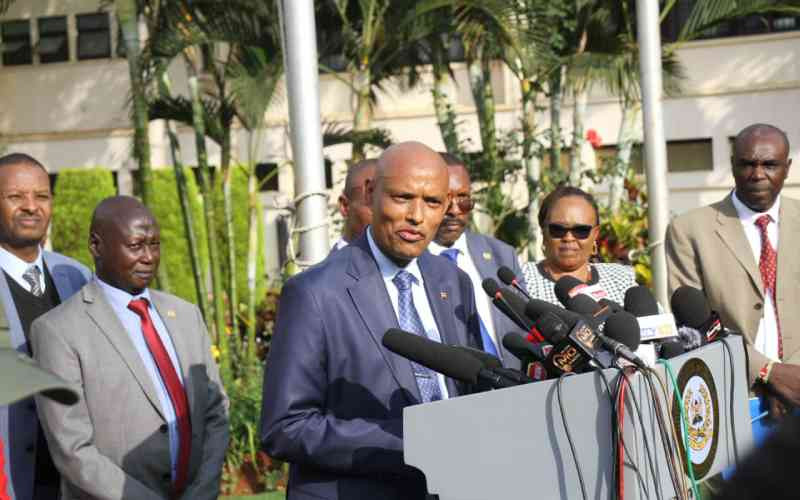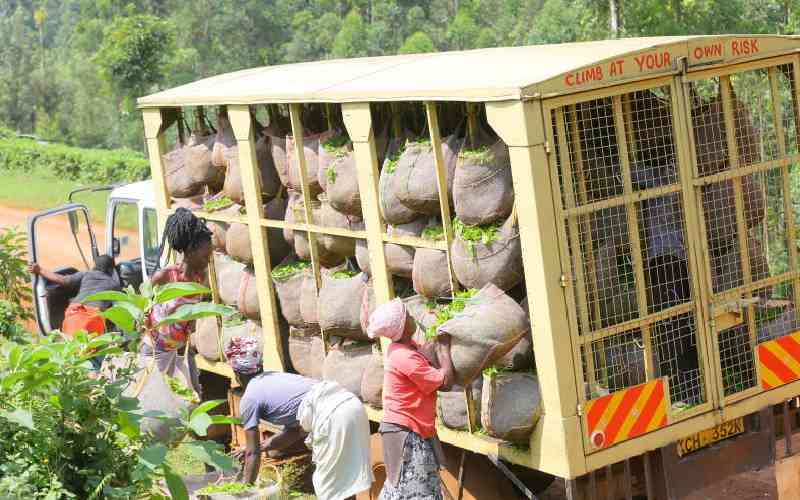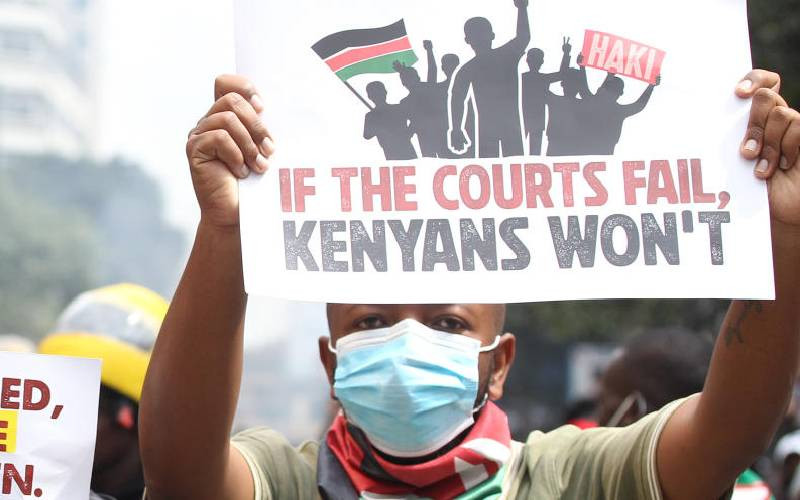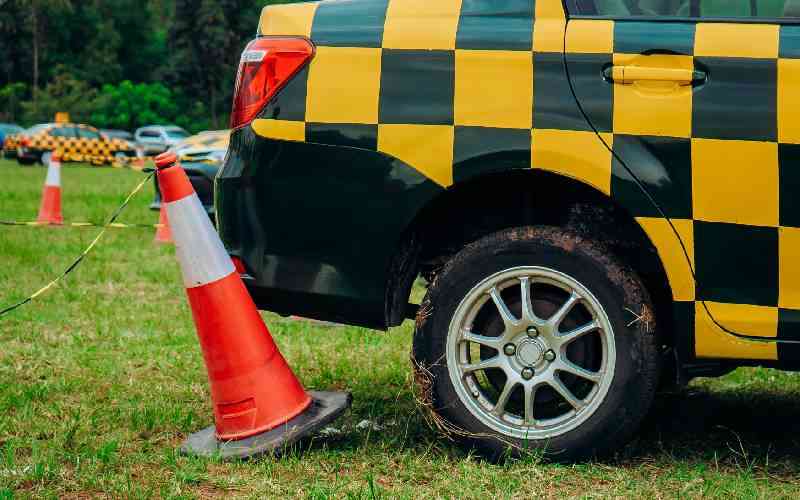As the Government was opening the Kenya We Want conference, some civil society groups, led by Bunge la Mwananchi, were briefing the Press about a parallel event titled the Kenya We Do Not Want, which begins today (Thursday).
Bunge la Mwananchi, you will recall, is the outfit behind Jamhuri Day heckler Fred Odhiambo.
Their inability to hold a meeting uninterrupted by police has been an issue since February last year when they began planning protests over the food crisis. Naturally, they have a more pessimistic view of the country than most of the leaders gathered at the Kenyatta International Conference Centre (KICC). This view, however, must be given due consideration and its proponents allowed to share it with others in so far as they remain law-abiding.
"The Kenya We Do Not Want (conference) will provide a platform for Kenyans with grievances against the State and its agencies to come together and highlight the very pressing issues that are perpetuating the Kenya we do not want," reads a Press release put out by the group.
To Bunge la Mwananchi and others with grievances, President Kibaki’s words yesterday were interesting: "The temptation to paint existing institutions as having failed is strong and some may have a powerful desire to tear down and replace them with new ones. Yet in America... institutions that once failed the people have been transformed into those that now enable them.
Unwanted Bodies




"Americans did not tear down their institutions in order to place a Black American in the White House. They worked within existing institutions and used them to climb to the top.
"Similarly, as we reform Kenya’s institutions, let us avoid the temptation to tear down those that do not seem to support us here and now. Instead, let us focus on how to make existing institutions work well for all."
For those meeting under the banner of the Kenya We Do Not Want and others pushing for governance and institutional reform, this will be a bone of contention. The list of institutions in which change is being sought is long. While the Electoral Commission of Kenya was torn down on the advice of the Kriegler Commission and replaced with two temporary bodies, the Waki Report’s prescription for the Administration Police and Kenya Police was ignored. The Law Society’s petition for change in the Judiciary is still pending. And the Kenya Anti-Corruption Commission, whose record in dealing with graft has been the subject of debate, is another oft-mentioned candidate for immediate overhaul.
Even the National Cereals and Produce Board, whose activities were under scritiny in Parliament yesterday, is on the list.
Any forum compiling grievances against the State and State agencies will naturally conclude some institutions are so compromised as to be beyond repair. The consensus will likely be that many need to be replaced. It may well be that such sentiments arise at the Vision 2030 forum on the Kenya We Want as well. Our prayer is that, unlike the recommendations of the Commission of Inquiry into the Post-Election Violence, these views should not be dismissed out of hand.
Ultimately, there is more to be gained by improving institutions than by tearing them down and beginning afresh. However, the case can be made for the replacement of one or two institutions.
Aimless Griping
The Kenya We Want and the Kenya We Do Not Want are two sides of the same coin. While the latter runs the risk of degenerating into aimless griping about the woes blighting the country, the former can just as easily vanish into a cloud of feel-good glittering generalities.
From the two, citizens expect not merely a cataloguing of ills or a list of lofty statements, but action-oriented resolutions that are informed by deliberations not just within the meeting, but also outside it. If the Government and the organisers of the alternative conference approach this as a dialogue, not a shouting match, the nation can gain immensely.
Stay informed. Subscribe to our newsletter
Contrarian voices are just as useful to the national dialogue as mainstream thinkers.